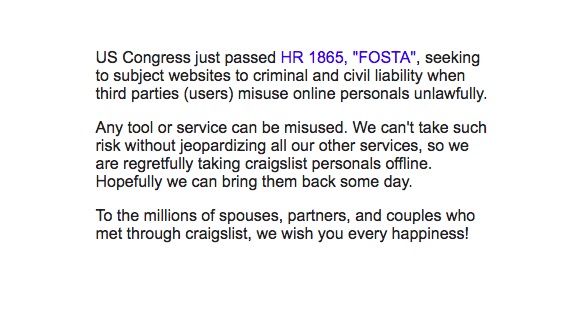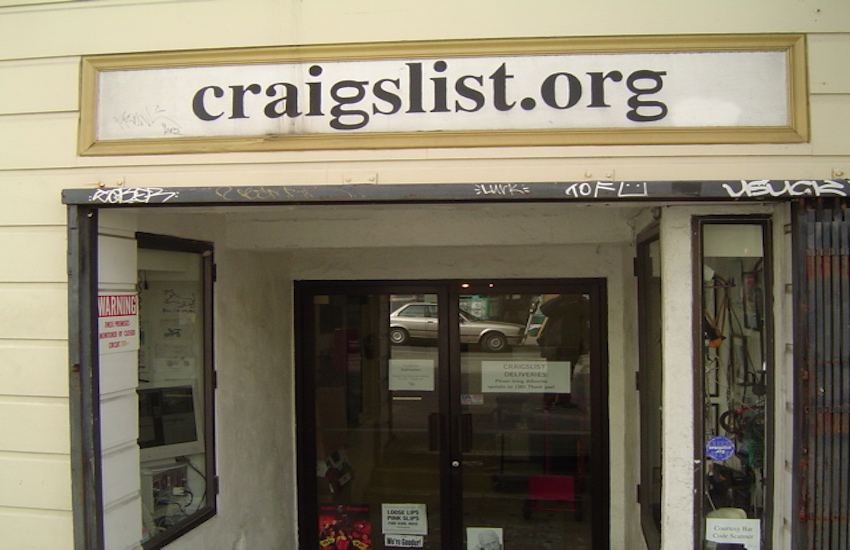Craigslist’s headquarters in San Francisco
Popular classifieds site Craigslist announced on Friday, 23 March that they will no longer be operating the site’s personals section.
How come?
This move is due to the United States Senate’s approval of new legislation to stop sex trafficking.
The legislation, called the Stop Enabling Sex Traffickers Act, would allow for a new provision of Section 230 of the 1996 Communications Decency Act to let victims of sex trafficking sue the websites that facilitated their abuse.
Now, when one attempts to view the personals section of Craigslist, they are redirected to the following message:

‘US Congress just passed HR 1865, “FOSTA”, seeking to subject websites to criminal and civil liability when third parties (users) misuse online personals unlawfully,’ the statement reads.
‘Any tool or service can be misused. We can’t take such risk without jeopardizing all our other services, so we are regretfully taking craigslist personals offline. Hopefully we can bring them back some day.’
‘To the millions of spouses, partners, and couples who met through craigslist, we wish you every happiness!’
Impact
Craigslist has been the website used by many anti-LGBTI politicians to meet hookups discreetly.
One such instance was with Ohio state legislator Wes Goodman, who resigned back in December 2017. Despite voting for anti-LGBTI legislation under the guise of ‘Christian values,’ Goodman was caught using the site’s Men Seeking Men board to pursue young gay men.
Another case, which led to a sex trafficking investigation last year, was with former Oklahoma lawmaker Ralph Shortey. Shortey, a Republican Trump supporter, pled guilty to using Craigslist to meet a 17-year-old boy in a motel room. He offered the teen money in exchange for ‘sexual stuff.’
Background
Craigslist was founded in 1995 by Craig Newmark. It became a web-based classifieds service in 1996 for the San Francisco Bay Area. In 2000, the site began to expand to other U.S. cities. It is now available in about 700 cities in 70 countries worldwide.







